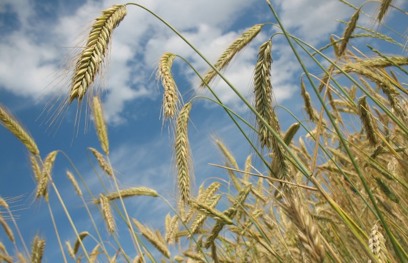Matanot Aniyim, Chapter 3: Laws of Shichechah

A brief overview of the laws of shichechah.
- The mitzvah of shichechah, the prohibition to harvest forgotten sheaves, is from the following verse: "When you reap the harvest in your field and overlook a sheaf in the field, do not turn back to get it; it shall go to the stranger, the fatherless, and the widow" (Devarim 24:19). From here we learn that if harvested stalks are taken to the granary from the field and several stalks are forgotten in the field, it is forbidden to gather them; these stalks are to be left for the poor.[1] Similarly, if one harvests part of a field and leaves a section unharvested, it is forbidden to go back and harvest the rest. That too, should be left for the poor.[2]
- The following verse states: "When you beat down the fruit of your olive trees, do not deglorify it [by picking all its fruit] after you; it shall be left for the stranger, the fatherless, and the widow;" "after you" refers to shichechah; from here we learn that shichechah also applies to olive trees and other fruit trees. [3]
- Shichechah is similar to lekket: The mitzvah of shichechah applies to all crops obligated in pe'ah (see Matanot Aniyim, Chapter 1, 5); that is, grain, legumes, and vegetables that ripen in the same season.[4]
- Shichechah applies only to a small amount that people tend to forget. For that reason, if one forgot two bushels (omarim) or two heaps of olives, one may not return to gather them. If more than this amount is left behind, shichechah does not apply.[5] Even if two bushels or heaps are left, shichechah applies only to an amount equal or less than two se'ah (the equivalent of 12 kabim; approximately 11 kg of wheat). Any more than this amount is not considered shichechah and can be gathered.[6]
- Similar to the mitzvah of pe'ah and lekket, given the situation today, the poor will not gather these forgotten crops and it is not economically worthwhile for them to do so—shichechah does not apply (see Laws of Matanot Aniyim, Chapter 1,7).
[1] Rambam, Hilchot Matanot Aniyim, 1:5.
[3] Chulin 131a; Rambam, ibid., 1:6–7.
[4] See Laws of Matanot Aniyim, Chapter 1, n. 6.




